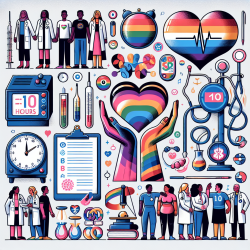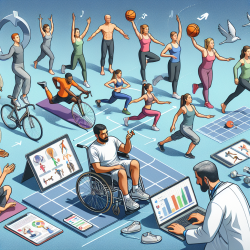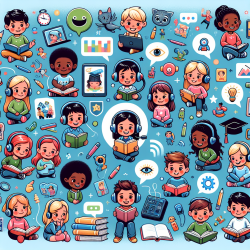Introduction
In recent years, the healthcare industry has made significant strides in recognizing and addressing the unique health needs of LGBTQ individuals. Despite these advancements, many healthcare providers still lack the necessary training to offer culturally competent care to this community. The research article titled "Early Intervention for LGBTQ Health: A 10-Hour Curriculum for Preclinical Health Professions Students" highlights an innovative approach to bridging this gap in medical education.
Understanding the Curriculum
The 10-hour curriculum, developed for preclinical medical and physician assistant students, includes a comprehensive set of activities designed to improve cultural competency and sensitivity. The curriculum covers:
- LGBTQ terminology and inclusive sexual history taking
- Primary care and health maintenance for LGBTQ individuals
- Transition-related care for transgender patients
- Panel discussions with LGBTQ community members
- Small-group practice sessions with standardized patients
Key Outcomes
The curriculum's implementation showed significant improvements in students' confidence in working with LGBTQ patients. Students reported feeling more prepared to:
- Elicit relevant information about sexual behavior and gender identity
- Summarize health needs and primary care recommendations for LGBTQ patients
- Identify community resources supporting LGBTQ health and wellness
While the curriculum was effective in boosting confidence, it was less successful in increasing LGBTQ-related medical knowledge. This highlights the need for ongoing education and exposure to LGBTQ health issues throughout medical training.
Encouraging Further Research and Implementation
Healthcare practitioners can benefit greatly from implementing similar educational initiatives in their institutions. By adopting and adapting the curriculum, educators can foster an environment that promotes empathy and understanding toward LGBTQ patients. Additionally, practitioners are encouraged to engage in further research to explore innovative ways to integrate LGBTQ health topics into medical education.
Conclusion
Incorporating comprehensive LGBTQ health education into medical curricula is a crucial step toward reducing health disparities and improving care for sexual and gender minorities. Practitioners and educators are urged to prioritize this aspect of medical training to ensure all patients receive the highest quality of care.
To read the original research paper, please follow this link: Early Intervention for LGBTQ Health: A 10-Hour Curriculum for Preclinical Health Professions Students.










